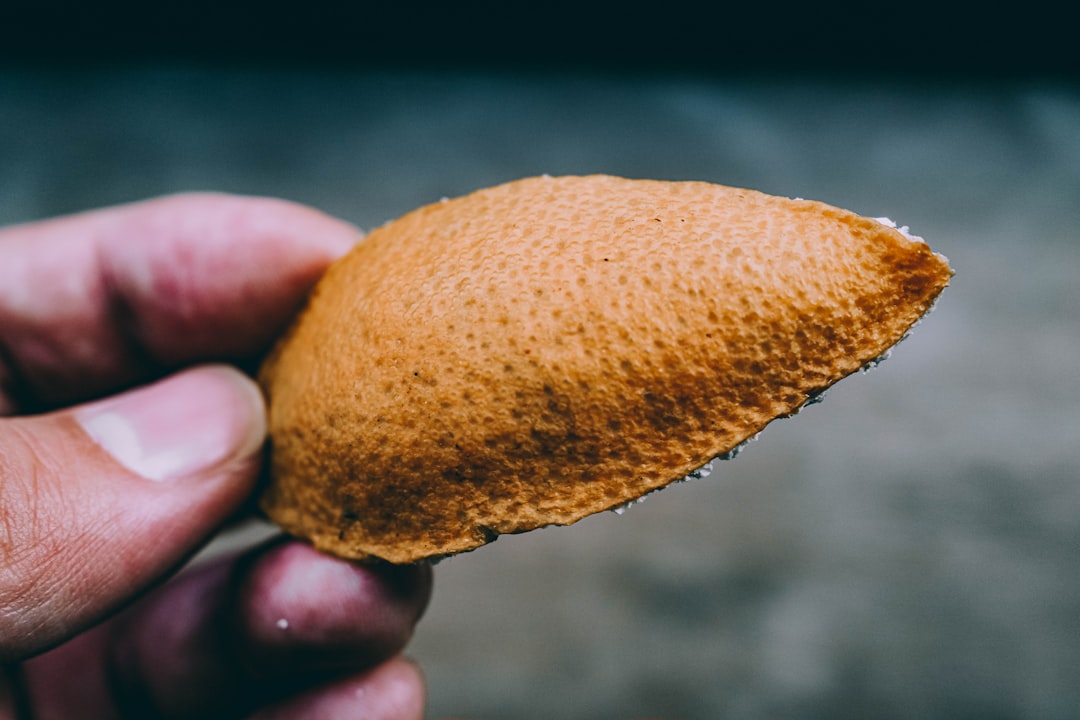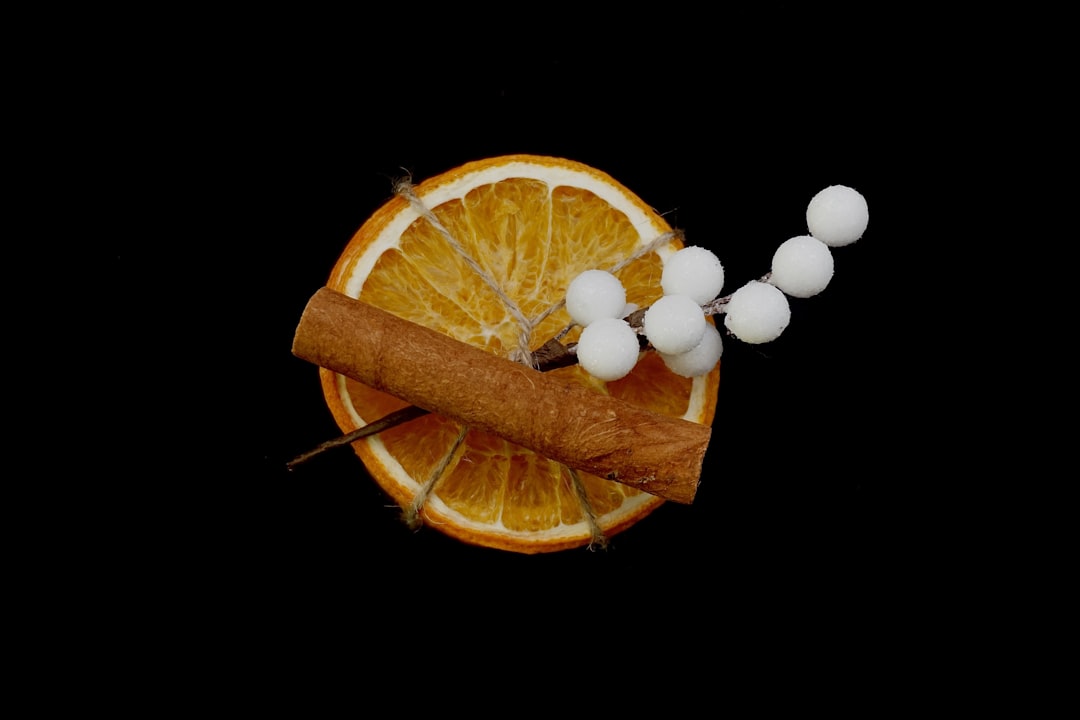Boost Your Immunity with Orange Peel Tea - Discover the Benefits of Chen-Pi!
When you're feeling a bit off, you may have heard the recommendation to add some vitamin C to your diet. But if you grab a tangerine or mandarin to get that extra dose of vitamin C, don’t throw away the peel! In traditional Chinese medicine, the peel of citrus fruits, or Chen-pi, is thought to have many health benefits. It can help with everything from colds to digestion, especially during the cold winter.
You can make tea with orange peels or tinctures to help strengthen the immune system, improve metabolism, and even reduce inflammation. In this post, get the lowdown on the benefits of incorporating citrus peels in your diet and drinking orange peel in tea.
How Can You Use Orange Peels (or Chen-pi) to Support Your Health?
Dried citrus peels are an incredibly potent herbal remedy with plenty of flavor! This ancient Chinese medicine has been revered for centuries because it is warm, bitter, and pungent. Peels can be used to restore the balance between Yin and Yang.
Chen Pi, also known as citrus peel, is highly regarded in Chinese Medicine. It is used to promote digestion and relieve food stagnation, reduce nausea and vomiting, and reduce chest congestion related to bronchial inflammation. It can be used in infusions to boost the immune system and promote digestion.
Modern science also confirms that dried tangerine peel packs a powerful punch of polymethoxyflavones (PMFs), making this citrus fruit a powerhouse for health. They're loaded with the goodness of vitamin C and polyphenols (Hassan et al.) This concoction is not only beneficial for immune health, it also helps promote wound healing and fight oxidative damage.
How to Reap the Health Benefits of Orange Peel
You can use the whole form, powdered version, or capsule to add some zest to your health routine. Dried peels are deemed generally safe to consume. Make your own special blend by combining your favorite sweetener, tea leaves, peels, and seasonings to make orange peel tea. Add just 1 to 2 teaspoons of peels to make a simple orange tea by steeping in boiling water. You can also toss some leftover orange peels with black tea or green tea to add a citrus twist. Drinking orange peel tea with a sprinkle of cinnamon powder is also a delight. If you have a dry cough related to yin deficiency, however, steer clear of orange tea. Here are a couple other orange peel recipes we love.
Orange Peel Tea Recipe
This tea recipe is perfect for when you're not feeling your best, and you need an immunity booster. Make this tea with peels from organic oranges when possible.
Ingredients:
2 pieces of dried mandarin orange peel
2 teaspoons of dried goji berries
1 teaspoon of dried chrysanthemum flowers
2 pieces of dried licorice root
1300 ml of boiling water
Directions:
- Add mandarin orange peel, goji berries, chrysanthemum flowers, and licorice root to a large mug or teapot.
- Pour the boiling water over the ingredients.
- Allow the tea to steep for 10 minutes.
- Strain the tea and discard the herbs.
- Drink your tea once it has cooled.
Orange Peel With Rice Porridge
Elevate your wellness routine with this easy recipe for rice porridge, which warms the stomach and spleen, harmonizes the intestine, forces Qi, reduces moisture, brings the Liver Qi in motion, cools heat, moisturizes, relaxes and builds up Qi. Ready in just 10 minutes, this recipe contains only 120 calories per portion and is suitable for those with a lactose intolerance.
What You’ll need:
1 cup of any rice variety
6 cups of water
½ cup of mushrooms
1/4 piece of grated orange peel
1 teaspoon of olive oil
½ bunch of celery sticks
3–4 tablespoons of basic chicken soup and a pinch of salt.
Directions:
Start by bringing the water to a boil and add the rice. Simmer for 10 minutes until it begins to thicken. Add all the remaining ingredients, season with salt to taste and cook for an additional 5 minutes. Serve warm and enjoy the nourishing benefits of this deliciously wholesome dish!
Commonly Asked Questions
Is it safe to drink tea made with orange peel?
Yes, it is important to note that orange peel is generally safe to consume in small amounts. It can be added to tea, cooked in recipes, or even taken as a supplement. When consumed in moderation, it can offer numerous health benefits including improved digestion, boosted immunity, and reduced anxiety.
Does orange peel tea have a strong flavor?
Orange peel tea is a delicious tea, with intense citrus notes that linger in the drink. It is not overpoweringly strong; instead, it's a light and pleasant taste with a hint of citrus and tartness. The tea taste depends largely on the orange peels you use and how long you steep them for. For a milder flavor, use fresh orange peels or frozen orange peels, and steep them for two to four minutes. If you want a deeper flavor, make a tasty tea using dried orange peels, and steep them for five to seven minutes. You can also adjust the taste by adding sugar, honey, or a bit of lemon juice.
Does orange peel tea have caffeine in it?
Orange peel tea is naturally caffeine-free and contains a variety of vitamins and minerals that can benefit your health. Additionally, many people find that the flavor and aroma of orange peel tea is much more pleasant than traditional teas.
Final Thoughts
While tangerines and mandarins are classic winter-time treats, remember to save the peels and include them in your diet for additional health benefits. Citrus peels are full of antioxidants that can help alleviate a variety of illnesses and reduce symptoms of chronic conditions. From boosting the immune system to reducing bloating, adding citrus peel tea is an easy and delicious way to support your health. Take advantage of nature’s bounty this winter, and give your body the nourishment it needs.
References:
Hassan, F, et al. “Efficacy of Ascorbic Acid and Different Sources of Orange Peel on Growth Performance, Gene Expression, Anti-Oxidant Status and Microbial Activity of Growing Rabbits under Hot Conditions.” Animal Biotechnology, 2022, www.semanticscholar.org/paper/Efficacy-of-ascorbic-acid-and-different-sources-of-Hassan-Shalaby/515d15bcdfbee0b8a053f05c636e79f4dd3ef8f4. Accessed 19 Feb. 2023.
Zeng, Su-ling, et al. “Citrus Polymethoxyflavones Attenuate Metabolic Syndrome by Regulating Gut Microbiome and Amino Acid Metabolism.” Science Advances, 2020, www.semanticscholar.org/paper/Citrus-polymethoxyflavones-attenuate-metabolic-by-Zeng-Li/c659ebbb6a1098bdd8716e1047d26a738a77a460. Accessed 19 Feb. 2023.
Get your daily dose of wellness delivered straight to your inbox. Sign up now for our newsletter.
Disclaimer:
These statements have not been evaluated by the Food and Drug Administration. This product is not intended to diagnose, treat, cure, or prevent any disease.
The content is purely informative and educational and should not be construed as medical advice. Any opinion expressed should not be treated as a substitute for professional medical advice. By using this website, you accept our Terms & Conditions and Privacy Policy. We cannot guarantee the accuracy of the information presented at this site. This article is not intended to be used as a substitute for the diagnosis and treatment of any health problem or to prescribe any medication or other treatment. You should consult with your health care provider before starting any diet, exercise, or supplementation program, before taking any medication, or if you have or suspect you might have a health problem.


